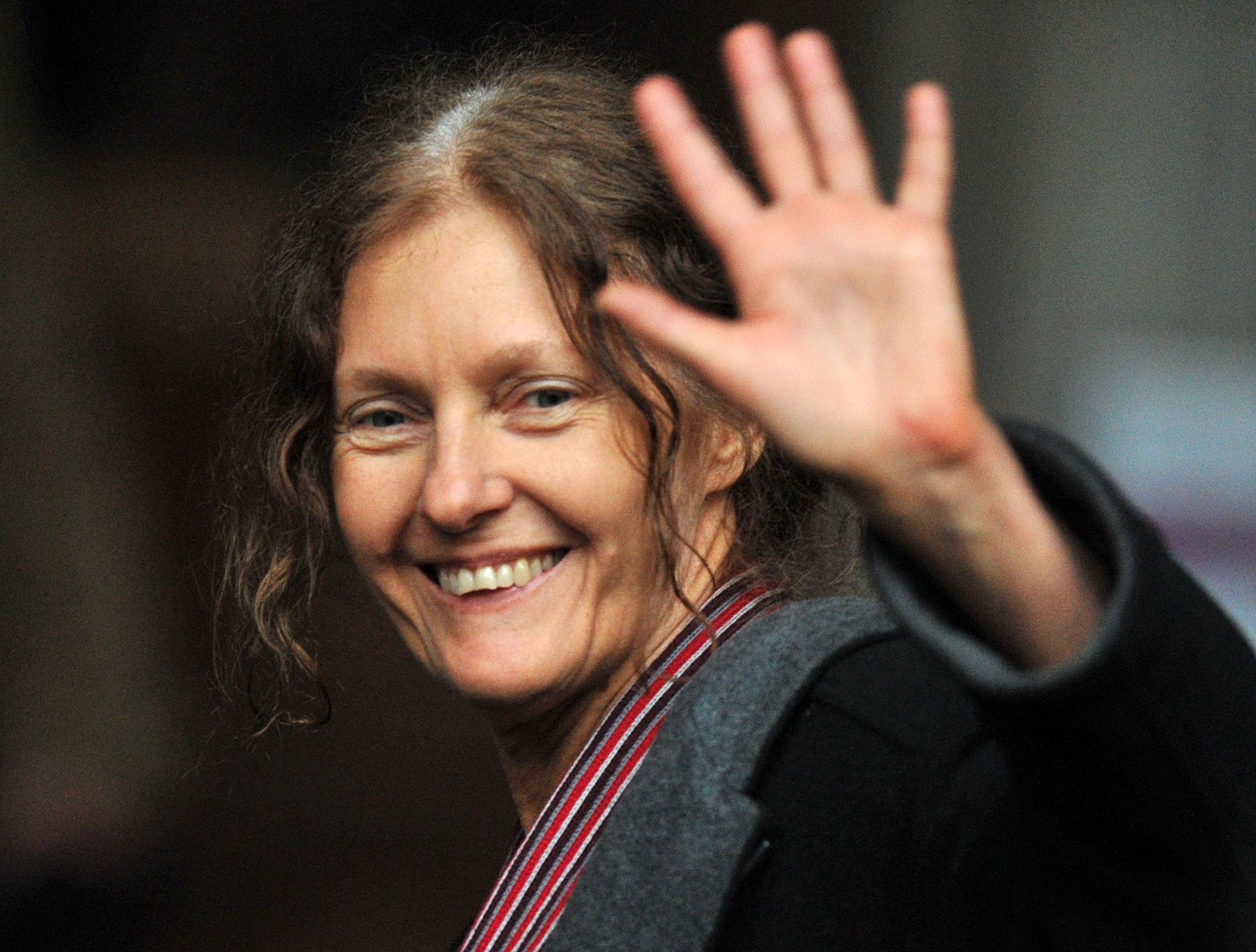Julian Assange’s mom meets with President Rafael Correa of Ecuador
Christine Assange, mother of WikiLeaks founder Julian Assange, smiles and waves after addressing the media outside the High Court in central London, on December 16, 2010.
Julian Assange's mom has met with Ecuadoran President Rafael Correa to discuss her son's future.
Assange, 41, is holed up at Ecuador's embassy in Britain seeking asylum in the South American nation to avoid extradition to Sweden, where he is accused of sexual assault.
During her meeting with Correa, Christine Assange, an Australian national, expressed her "concerns and qualms about what could happen to Julian Assange if he is extradited to Sweden by the British government," Foreign Minister Ricardo Patino told reporters, according to SBS Television.
Correa responded by reportedly telling her during their hour-long meeting that "the important thing is for Julian to be assured that Ecuador is considering with great responsibility" his asylum request.
While Ecuador would not announce a decision on the request until after the London Olympics, Correa said his country had a "great humanist tradition and respect for human rights."
He also said that while he respected Britain, Sweden, and the people of the US, "Ecuador does not negotiate over its sovereignty."
Meanwhile, Sweden has declined Ecuador's offer to question Assange in person or via video conference at the embassy, Ecuadorean Foreign Minister Ricardo Patino said in a statement cited by the Associated Press.
Christine Assange, meantime, has voiced concerns for her son's health. She told the AP: "He is under a lot of stress and it’s been long-term stress now for nearly two years and in conditions which are similar to detention."
She claimed the Swedish extradition attempt was being used as a pretext for his extradition to the US to face espionage charges stemming from WikiLeaks' publication of secret US documents.
She told Agence France-Presse that based on "a chronological history of the Swedish investigations and based on the fact, there is absolutely no doubt" the charges against her son are part of a political persecution against him.
She described her own government as a "lap dog" of the US and told reporters in Ecuador that she felt abandoned by the Australian authorities, the LA Times reported.
The story you just read is accessible and free to all because thousands of listeners and readers contribute to our nonprofit newsroom. We go deep to bring you the human-centered international reporting that you know you can trust. To do this work and to do it well, we rely on the support of our listeners. If you appreciated our coverage this year, if there was a story that made you pause or a song that moved you, would you consider making a gift to sustain our work through 2024 and beyond?
